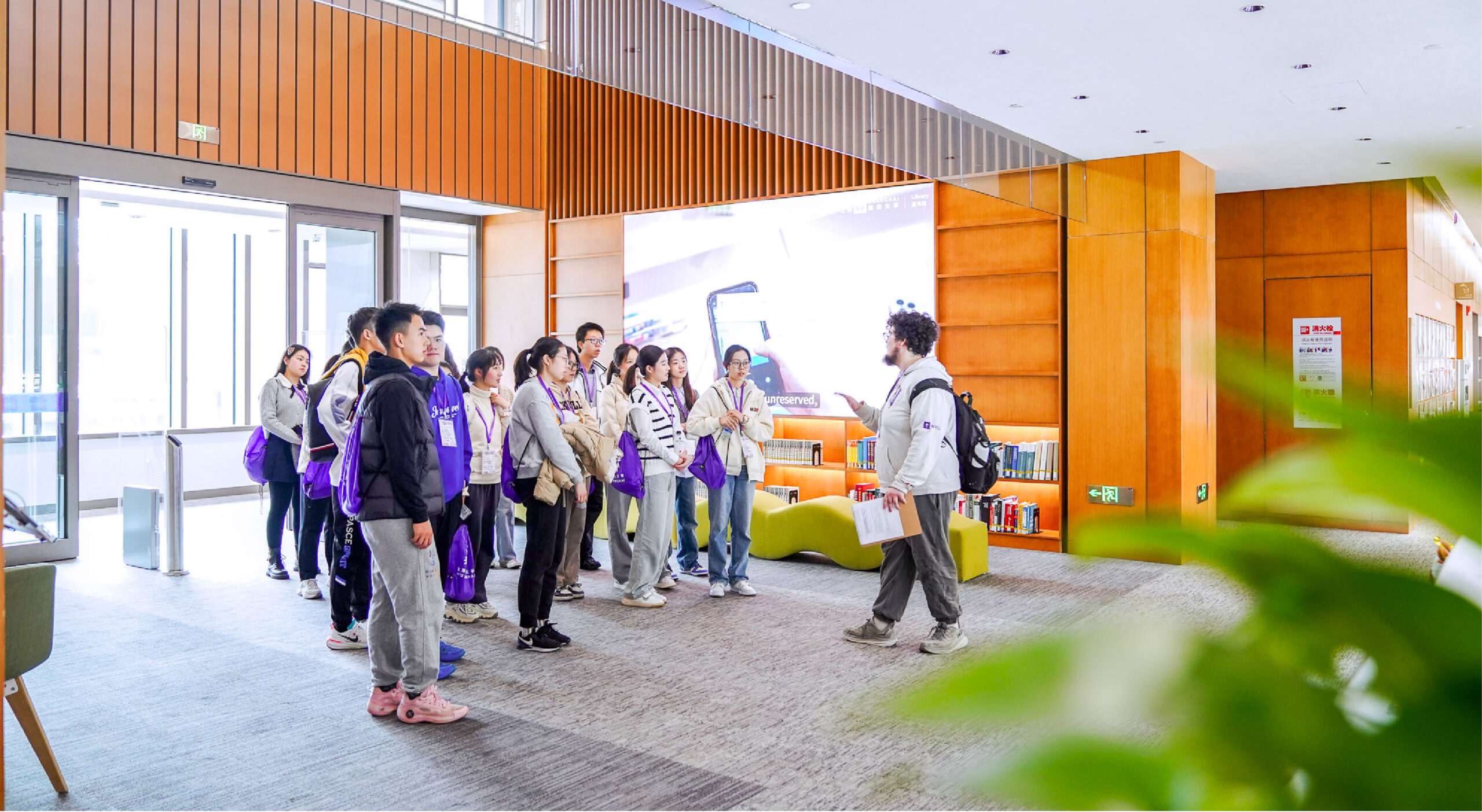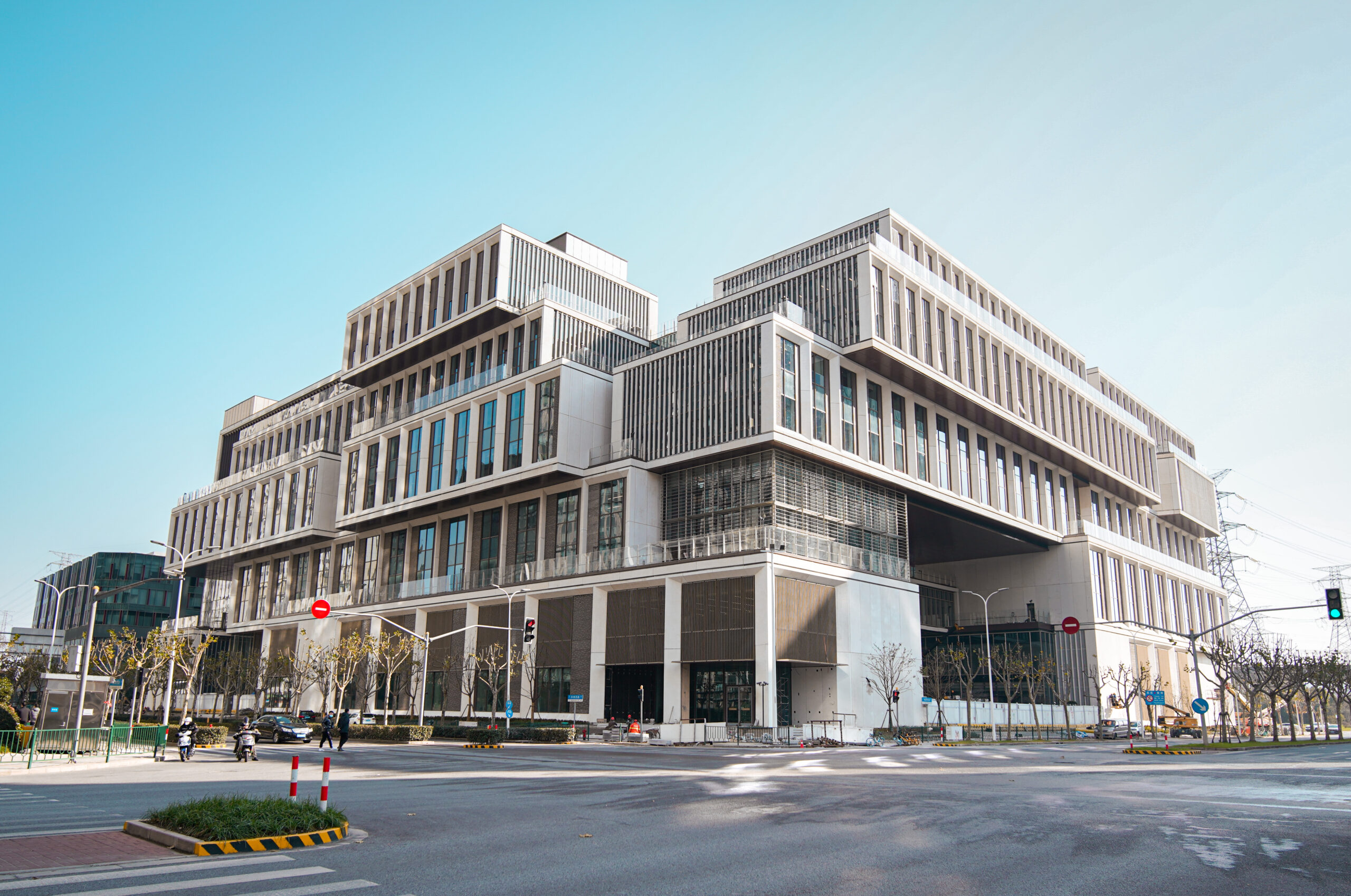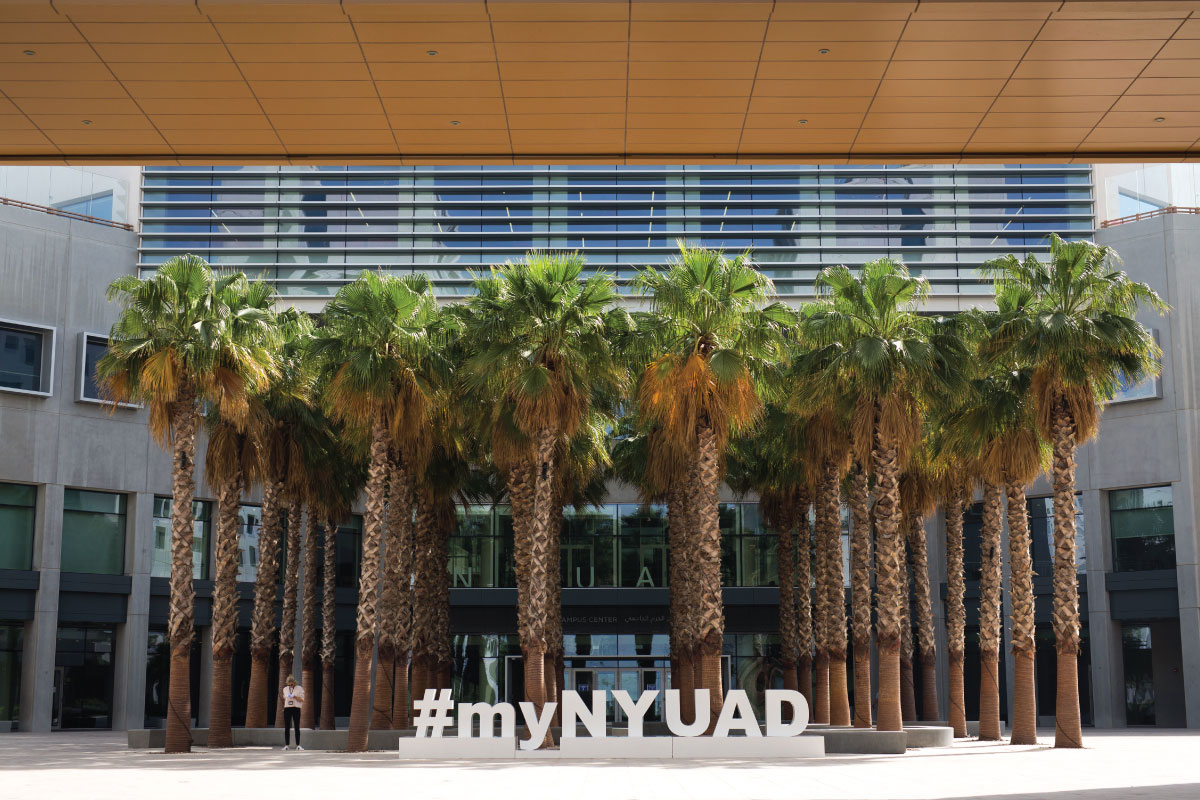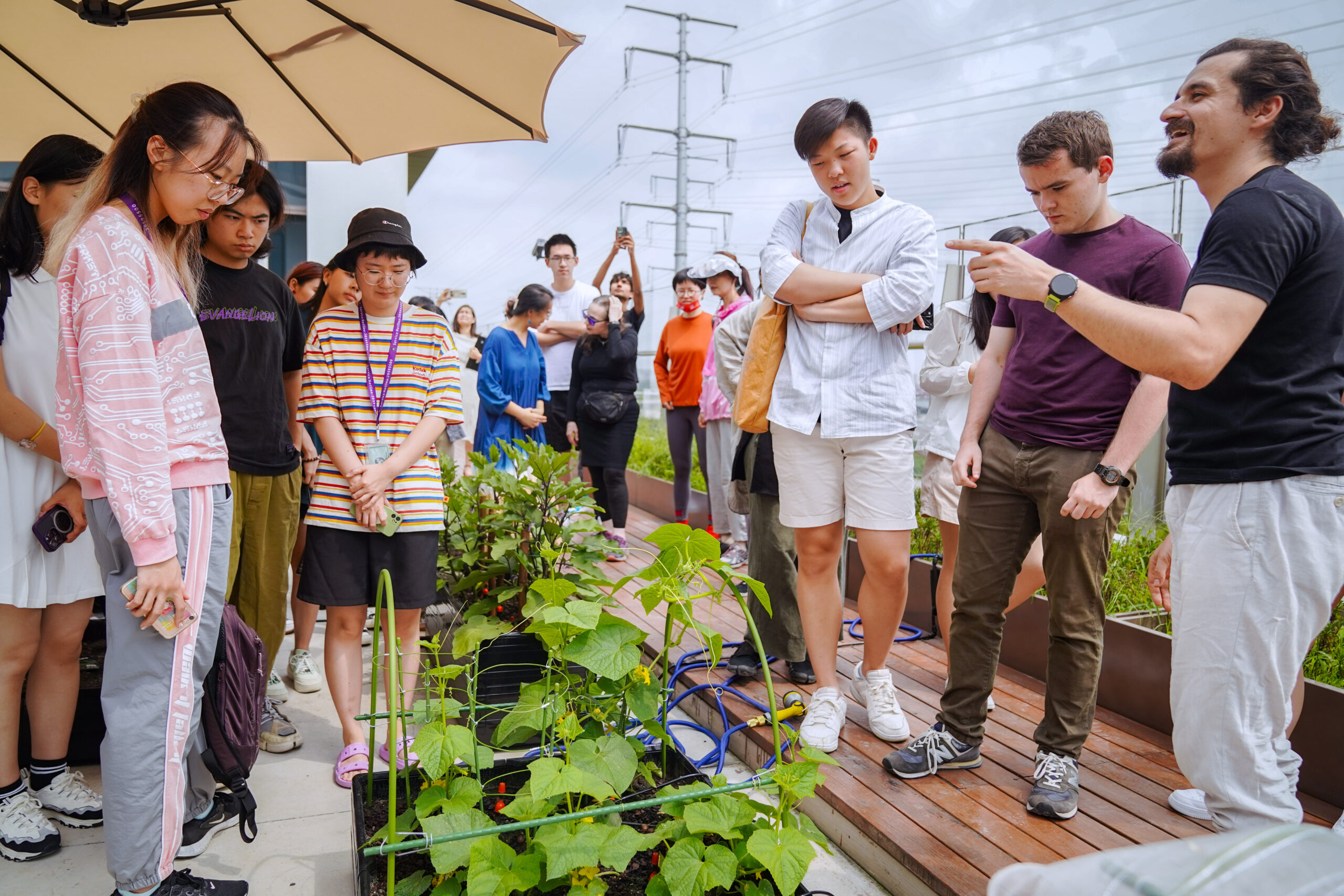
When you study at NYU Shanghai, China’s largest city is your campus. There, you have numerous opportunities for cultural immersion and academic exploration. But if you feel overwhelmed by urban life, you need only gaze up. On top of the NYU Shanghai building, you’ll find a rooftop garden. It’s a green oasis in the bustling city, where NYU students nurture their minds and green thumbs. “Shanghai’s a city. So you only get so many opportunities to go out into nature,” says Joseph Taylor, an Economics major. Suvi Biesinger, a Biology major, adds, “I moved from a rural place. And gardening is something I’ve missed. So I love having a communal space where I can come and garden.”
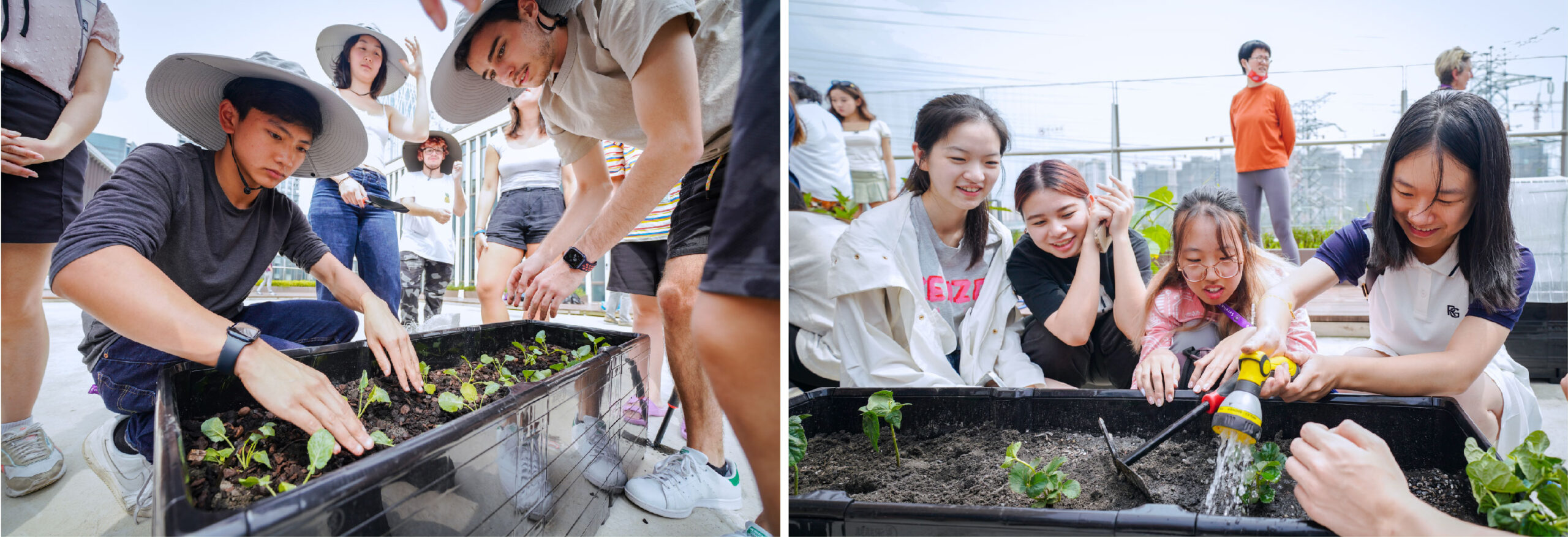
From Seed to Garden
Like so many exceptional aspects of NYU Shanghai life, the rooftop garden got its start thanks to students. When NYU Shanghai announced the plans for the New Bund campus, which opened in 2023, students and faculty urged the architects to reserve a rooftop green space. Today, the garden continues to grow with input from the NYU Shanghai community. Yifei Li, assistant professor of environmental studies, says it’s meant to be a refuge and resource for everyone on campus. “We are putting together a design that is flexible and modular. We want students, staff, and faculty to have a say about how we continue to shape and reshape it down the road,” he affirms.
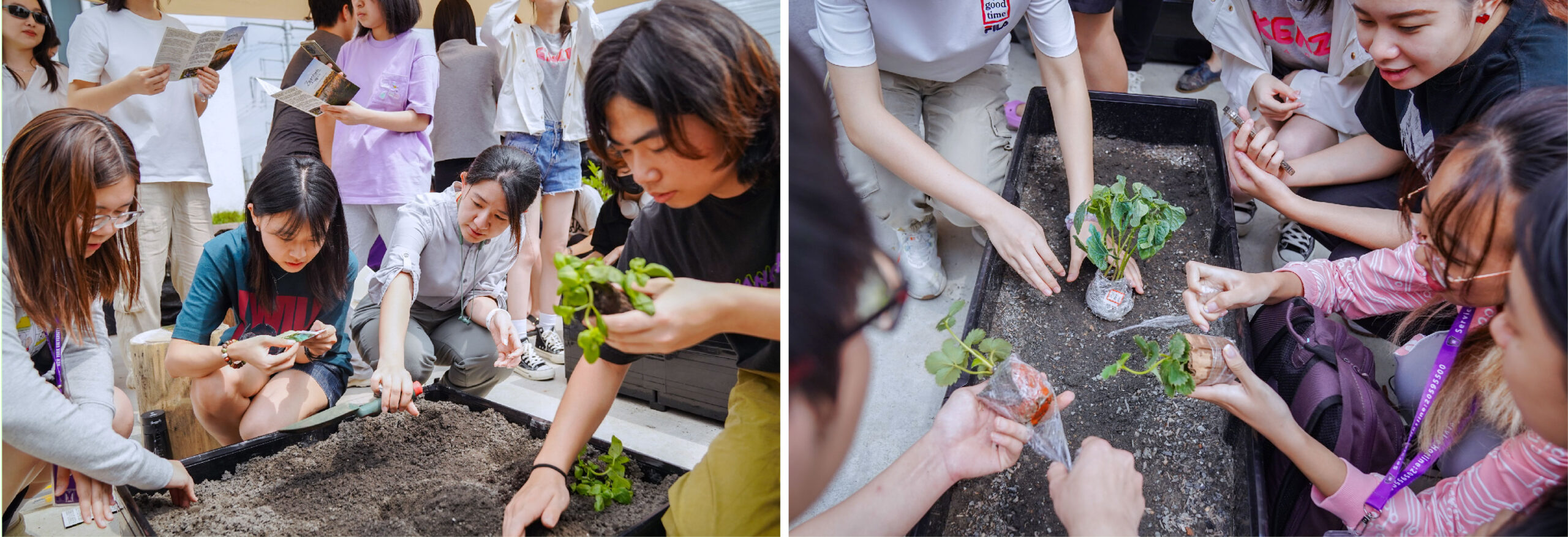
A Green Classroom
Already, several courses use the garden as a classroom–laboratory. So far, students in diverse courses like Beyond Nature, Utopias in Society, the Cultivated City, and the Question of the Anthropocene have benefited from the garden. For instance, students taking Urban Farming: Technology and Community use the space to experiment with gardening techniques and host events. “It’s really hands-on,” Assistant Arts Professor of Interactive Media Arts Andy Garcia, who teaches the course, explains. “We explore the reasons why we should care about urban farming from global, personal, and health perspectives.”
Hansa Mirpuri, a recent grad and Social Science major with a concentration in environmental studies, recalls hosting a farm-to-table dining experience as part of the course. “We harvested vegetables from the rooftop garden and cooked them in teams. Then, we shared a meal together,” she says. When there was an opening for a student worker in the garden, she jumped at the opportunity. “The experience of being a student worker for the rooftop garden was very enriching and valuable,” Hansa reflects. “And it meant even more because I already knew I wanted to have a career in sustainable agriculture. Plus, getting my hands dirty in the soil between classes was the perfect mental break I needed to feel more grounded.”
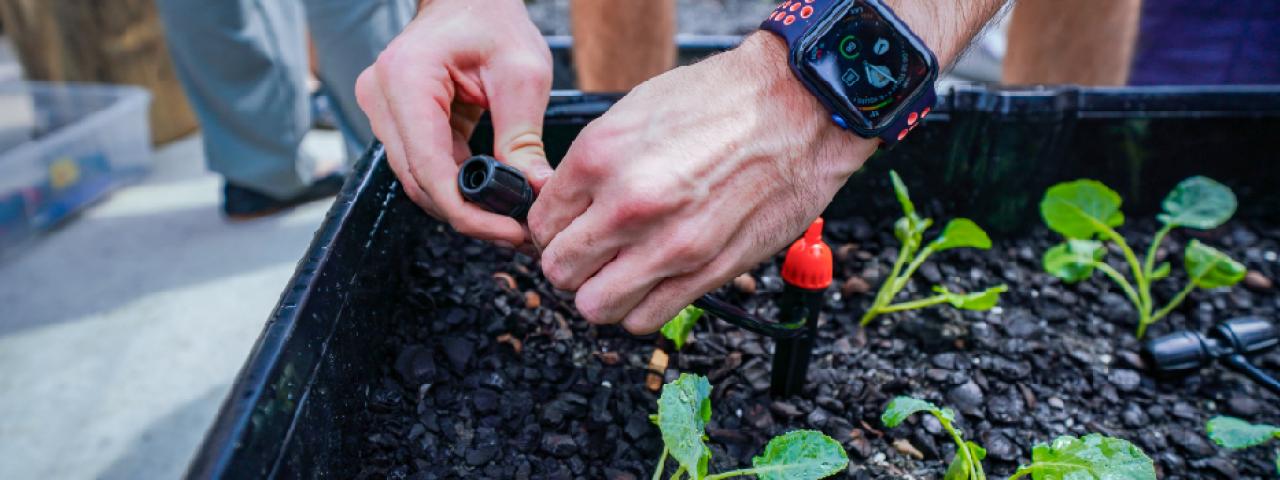
Gardens Across Borders
Ultimately, the rooftop garden is a source of pleasure, learning, and connection. In spring 2024 the garden committee ran a series of workshops involving students, faculty, and staff. Hosted by Kylie Bisman, an experienced rooftop gardener in Shanghai, the workshops included short- and long-term planning. Over the months, participants attended lessons on microclimates and guerrilla gardening. What’s more, the group took a field trip to nearby gardens to learn how the municipality approaches planting in the city.
In fact, Anna Greenspan, associate professor of contemporary global media, views the garden as a way to increase collaboration across NYU academic centers. At NYU Florence, located on the Villa La Pietra estate, students help grow olive trees and press their own olive oil. Furthermore, the Urban Farm Lab on NYU’s campus in New York City serves as an outdoor classroom, research lab, and community farm. “I can’t wait to think and learn in a multisensory, experimental, generative garden that activates new connections across NYU Shanghai and NYU’s global network,” Greenspan reflects.

